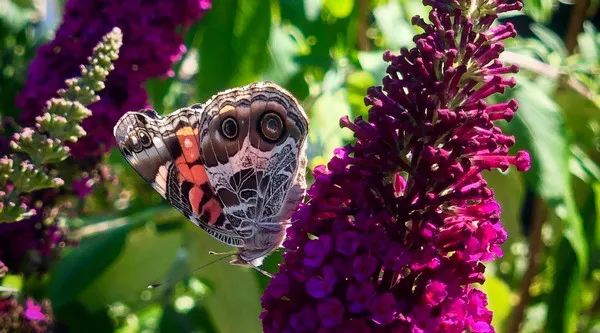In the world of gardening, the battle against pests is a perennial struggle that can significantly impact the health and vitality of your plants. One natural and colorful ally in this fight is the humble marigold. Renowned for their vibrant blooms and easy cultivation, marigolds are more than just ornamental flowers—they are powerful pest deterrents.
Understanding Pests and Marigolds
Pests, whether they are insects, nematodes, or other unwanted garden visitors, can wreak havoc on your carefully tended plants. Marigolds, with their unique chemical composition, act as natural repellents against a range of common pests. These resilient flowers produce compounds that not only deter pests but also promote the overall health of neighboring plants.
Comprehensive Pest Protection
Nematodes
Marigolds are particularly effective in repelling nematodes, microscopic worms that can damage plant roots and hinder nutrient absorption. The roots of marigolds release compounds such as alpha-terthienyl, which has been proven to suppress nematode populations in the soil. Planting marigolds as a companion to susceptible plants creates a protective barrier, reducing the risk of nematode damage.
Aphids
Aphids, those tiny, sap-sucking insects that can quickly infest your garden, are also deterred by marigolds. The strong aroma emitted by marigold flowers acts as a natural repellent, discouraging aphids from settling on nearby plants. Interspersing marigolds among susceptible crops can help minimize aphid infestations and protect the overall health of your garden.
Whiteflies
Whiteflies, known for their ability to transmit plant viruses, can be a menace in gardens. Marigolds release a substance called limonene, which disrupts the feeding and reproduction of whiteflies. By strategically planting marigolds, you create an environment that is less favorable for whitefly infestations, safeguarding your plants from potential diseases.
Mosquitoes
Beyond the vegetable patch, marigolds also prove useful in repelling mosquitoes. The natural compounds found in marigold foliage, such as pyrethrum, act as a deterrent to mosquitoes, making them a valuable addition to outdoor spaces where humans frequently gather. Consider planting marigolds in areas near seating or outdoor entertaining spaces to help keep mosquitoes at bay.
Cultivating Marigolds for Pest Control
Choosing the Right Marigold Varieties
Not all marigolds are created equal when it comes to pest control. Certain varieties, such as Tagetes patula (French marigold) and Tagetes erecta (African marigold), are known for their potent pest-repelling properties. When planning your garden, opt for these varieties to maximize the benefits of marigold companion planting.
Companion Planting Strategies
Integrating marigolds into your garden through companion planting is a strategic approach to pest management. Consider interplanting marigolds with susceptible crops or creating marigold borders around garden beds. This not only enhances the aesthetic appeal of your garden but also provides a natural and aromatic shield against invading pests.
Optimal Planting Locations
To maximize the effectiveness of marigolds as pest deterrents, pay attention to planting locations. Marigolds thrive in well-drained soil and require ample sunlight. Plant them strategically to create a protective barrier around susceptible plants or as a border along the garden perimeter. This placement ensures that the pest-repelling properties of marigolds are utilized to their fullest potential.
Regular Maintenance
Like any garden endeavor, success with marigold pest control requires regular maintenance. Deadheading, or removing spent flowers, encourages continuous blooming and ensures that the aromatic compounds responsible for pest deterrence are consistently released. Additionally, proper watering and fertilization contribute to the overall health and vitality of marigolds, enhancing their ability to repel pests effectively.
Environmental Benefits of Marigold Pest Control
Reduced Dependency on Chemical Pesticides
Embracing marigolds as natural pest repellents aligns with environmentally friendly gardening practices. By reducing the reliance on chemical pesticides, you contribute to a healthier ecosystem in your garden. Marigolds offer a sustainable and aesthetically pleasing alternative to synthetic pest control methods, promoting harmony between plants and beneficial insects.
Biodiversity Enhancement
The use of marigolds for pest control fosters biodiversity by creating a balanced ecosystem in your garden. Rather than resorting to broad-spectrum pesticides that may harm beneficial insects, marigold companion planting selectively targets specific pests. This approach allows beneficial insects such as ladybugs and parasitic wasps to thrive, contributing to a more resilient and diverse garden ecosystem.
Conclusion
In the intricate dance between plants and pests, marigolds emerge as a reliable partner in the quest for a pest-free garden. Their vibrant hues and aromatic properties not only enhance the visual appeal of your outdoor space but also serve as a natural defense against a multitude of pests. From nematodes to aphids and mosquitoes, marigolds showcase their versatility as formidable allies in the garden.
As you celebrate the one-year anniversary of this article, consider incorporating marigolds into your gardening repertoire. By doing so, you embrace a sustainable and eco-friendly approach to pest control, reaping the rewards of a thriving garden that flourishes under the protective influence of these resilient and beautiful flowers.


